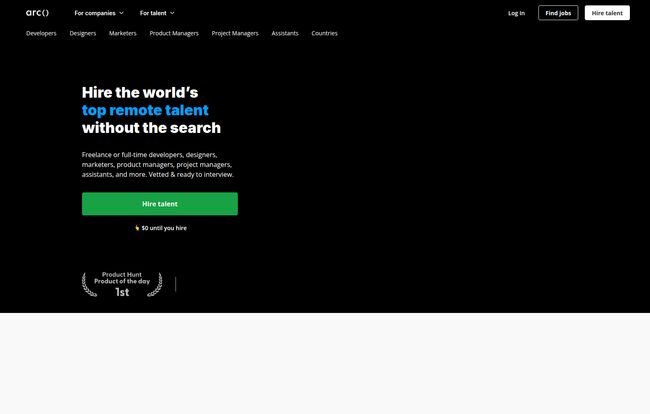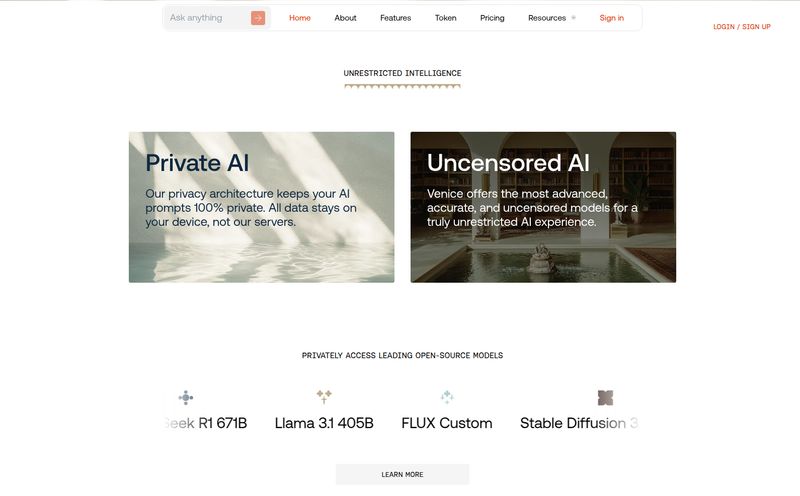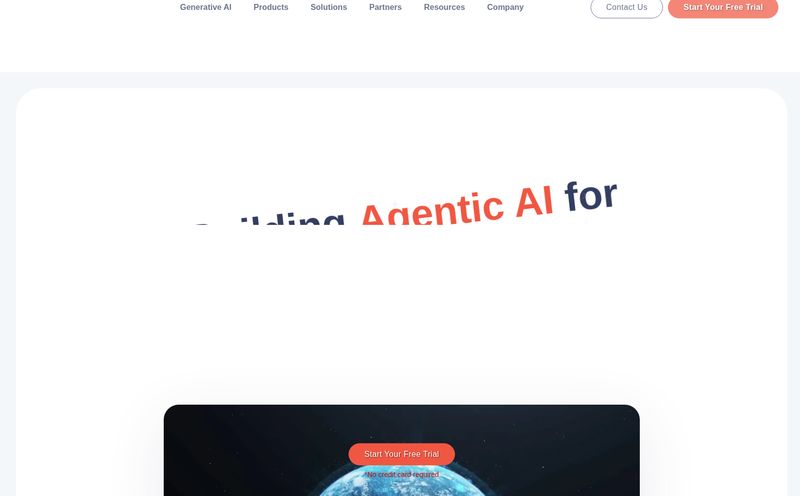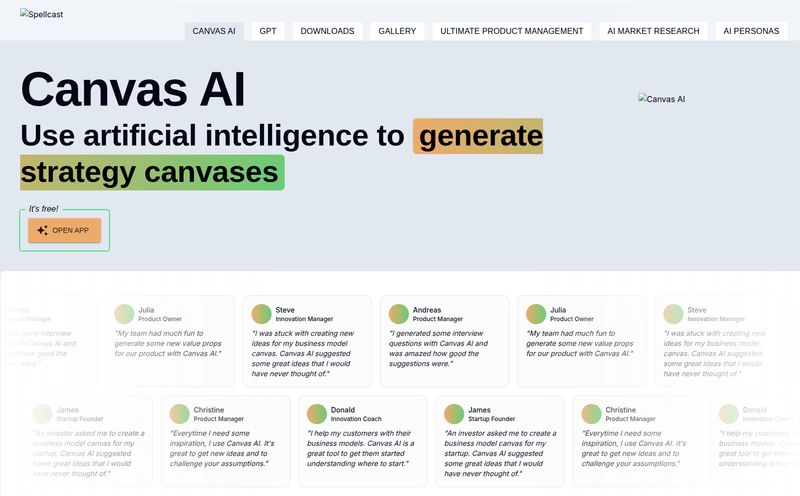Hiring is a nightmare. I’ve been in the digital marketing and SEO space for years, and I’ve seen it from both sides of the table. As a manager, you post a job and get buried under an avalanche of resumes. It feels like 90% of them didn't even read the job description. You spend weeks sifting, screening, and interviewing, only to have your top candidate accept another offer. It's a soul-crushing, time-devouring process.
Then the whole world went remote-first. Suddenly, our talent pool wasn't just the 30-mile radius around the office; it was the entire planet. Amazing, right? Well, yes and no. The haystack got infinitely bigger, but so did the number of needles. Finding that one perfect developer, designer, or project manager became an even more monumental task. We've all been there, scrolling endlessly through LinkedIn or Upwork, wondering if we're just shouting into the void.
That's the problem a platform like Arc.dev claims to solve. It popped onto my radar with a bold promise: “Hire the world’s best remote talent without the search.” My inner skeptic immediately perked up. Another platform? Another promise to make hiring “easy”? But I’ve learned to keep an open mind, so I took a closer look. And what I found was... genuinely interesting.
So, What Exactly is Arc.dev?
First off, don't think of Arc as just another job board. It's not a place where you post and pray. It's better described as a global, curated marketplace for talent. Think of it like a high-end art gallery versus a sprawling flea market. Both have treasures, but one has done the hard work of finding and verifying them for you.
Arc connects companies with a pre-vetted pool of remote professionals. We're talking developers, of course, but also designers, marketers, project managers, and even virtual assistants. The talent comes from over 190 countries, and the core of Arc's offering is its double-punch of a rigorous vetting process and smart, AI-powered matching. The goal is to cut out all the manual, painful parts of hiring—the outreach, the endless screening, the initial calls with people who are clearly not a fit.

Visit Arc
The Arc.dev Hiring Process: How it Actually Works
I appreciate simplicity, and their process is refreshingly straightforward. It boils down to three steps, which honestly, feels like how hiring should work in the 21st century.
- Tell them your needs. You don't just post a generic job description. You share your project scope, the specific skills you need, your timezone preferences, and all the little details that matter.
- Meet top candidates. This is where the magic is supposed to happen. Arc's AI gets to work, sifting through its vetted talent pool to find the best matches. They claim you can get connected with candidates in as little as 72 hours. No more manual searching.
- Interview and Hire. You get a shortlist of qualified, interested, and available people. From there, you just connect, do your final interviews, and make the hire. They even handle the messy bits like secure payments and global compliance.
Compared to the traditional method of Post -> Sift -> Screen -> Ghost -> Repeat, this feels like a breath of fresh air. It shifts the burden of finding talent from you to the platform.
The Good Stuff: What I Really Like About Arc
After poking around and seeing how it works, a few things really stand out. It’s not just one feature, but how they combine to solve a very real, very frustrating problem for businesses.
The 'Vetted' Promise is a Game-Changer
This is probably the biggest selling point for me. The idea that every candidate you see has already passed a technical and behavioral screening is huge. I’ve wasted so many hours interviewing people who looked great on paper but couldn't code their way out of a paper bag or lacked basic communication skills. Arc's vetting acts as a powerful first line of defense, filtering out the noise so you only speak to serious contenders. It’s like having a dedicated pre-screening team without adding to your headcount.
AI That Actually Feels Smart
We hear “AI-powered” so much it’s almost lost its meaning. But here, it seems to be applied correctly. Instead of just matching keywords in a resume, Arc’s AI considers a bunch of factors to find the right fit—technical skills, experience level, even soft skills gleaned from their vetting process. It's designed to be your personal talent scout, constantly working in teh background to bring you the best people. It's the difference between a search engine and a recommendation engine.
A Truly Global Talent Pool (Without the Headaches)
Hiring internationally is powerful. You can find incredible talent at more competitive rates and build a more diverse team. But it's also a logistical nightmare. Contracts, payment methods, local labor laws... it's a minefield. Arc abstracts a lot of that away. By handling the payment and compliance side of things, they make it much safer and easier to hire that amazing developer from Brazil or a brilliant designer from Poland. This is a massive value-add that many companies, especially smaller ones, simply can't handle on their own.
Let's Talk Money: The Arc.dev Pricing Model
Alright, this is the part everyone wants to know. A premium service usually comes with a premium price tag, right? Arc has two distinct models, one for freelancers and one for permanent hires. It's pretty clear and transparent, which I respect.
| Hiring Model | Cost Structure | What's Included |
|---|---|---|
| Freelance Hires | $15 - $110+ per hour | AI screening, vetted talent, dedicated recruiter, risk-free guarantee. |
| Full-time Hires | 20% of the annual salary | AI sourcing, access to 20M+ candidates, dedicated recruiter, ATS integration. |
The freelance rate is a wide range, but that's expected. A senior AI engineer in Switzerland is going to cost more than a junior content marketer in Southeast Asia. For full-time hires, the 20% fee might cause some sticker shock. But let’s put it in context. Traditional recruitment agencies regularly charge 20-30% of a candidate's first-year salary. So, Arc is positioning itself as a direct, more efficient competitor to that old model. You're paying a success fee for a vetted, matched candidate delivered right to your inbox.
The Not-So-Perfect Bits: Where Arc Could Improve
No platform is perfect, and it's important to go in with your eyes open. From my perspective, there are a couple of things to consider.
First, that 20% fee is a significant investment. For a bootstrapped startup or a small business with a tight budget, it might be a non-starter. This is a service for companies that value speed and quality over rock-bottom costs. You're paying to skip the line and get to the front.
Second, you're placing a lot of trust in their vetting process. While it's a huge benefit, it's not a substitute for your own due diligence. You still need to conduct thorough interviews and technical assessments to ensure the candidate is a perfect fit for your team's specific culture and workflow. Arc gets you to the 10-yard line; you still have to carry the ball into the end zone.
Who is Arc.dev Actually For?
So, who wins with Arc? In my experience, I see a few key profiles.
- Fast-growing tech companies that need to scale their development or product teams yesterday. The speed and quality of candidates are paramount for them.
- Marketing and creative agencies looking for reliable, high-skill freelancers for specific projects without the gamble of open marketplaces.
- Remote-first businesses that want to tap into the global talent pool but don't have a huge HR department to navigate the complexities of international hiring.
- Frankly, any hiring manager who is just plain tired of the old way and values their time more than the cost of the fee.
My Final Verdict on Arc.dev
So, is Arc.dev the magic bullet for all your hiring woes? No, of course not. No such thing exists. But is it a powerful, modern tool that can give you a serious advantage? Absolutely.
In my opinion, Arc is an investment. It’s an investment in time saved, in quality, and in reducing the risk of a bad hire—which, as we all know, can be catastrophic. It's not for every company or every budget. But if you're in a position where the cost of a vacant role or a wrong hire is far greater than the recruitment fee, then Arc.dev becomes a very, very compelling proposition.
It’s the difference between shouting your job opening at a crowded train station and having a personal concierge bring you a curated list of ideal travel companions. You pay for the curation, and for many businesses, that's a price well worth paying.
Frequently Asked Questions about Arc.dev
- What kind of roles can I hire for on Arc.dev?
- Arc specializes in remote tech and digital roles. This includes a wide range of developers (from front-end to blockchain), designers (UI/UX), product managers, project managers, marketers, and even executive assistants.
- How does Arc vet its talent?
- While the exact process is proprietary, they state that candidates go through a multi-stage screening process that includes verifying their experience, conducting behavioral interviews to assess communication and professionalism, and often includes technical assessments or code reviews for developer roles.
- Is the 20% fee for full-time hires negotiable?
- Generally, this is their standard success-based fee and is comparable to, or even better than, many traditional recruiting agencies. It's best to assume it's fixed, but it never hurts to discuss specifics with their team for unique or high-volume hiring needs.
- How quickly can I find a candidate?
- Arc advertises that you can be connected with top-matched candidates in as little as 72 hours. The full hiring timeline, of course, depends on your own interview process and decision-making speed.
- What if I'm not happy with a freelance hire?
- Arc offers a "risk-free guarantee" for their freelance hires. This typically means if you're not satisfied within a certain trial period, they'll work with you to find a replacement candidate without additional cost, ensuring you get the right fit for your project.
- Can I use Arc.dev if I'm a small business?
- Yes, small businesses can definitely benefit, especially when hiring for critical freelance roles. The key is to weigh the cost against the value of your time and the importance of finding a high-quality candidate quickly. The full-time placement fee might be more suited to businesses with dedicated hiring budgets.



